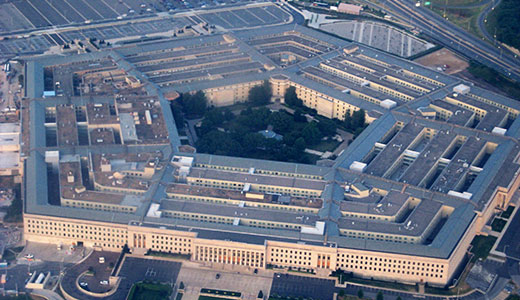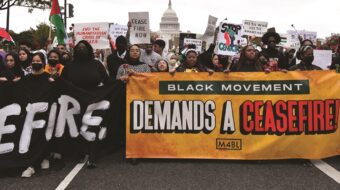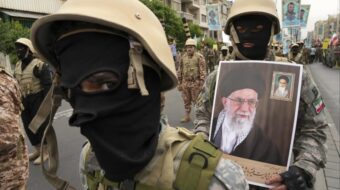
Coming out of World War II the United States was at the pinnacle of its power. Aside from the Soviet Union, it had no challengers on the world scene to speak of. But its triumph was not long lasting.
Today, its global economic, diplomatic, and even military power to control world developments is significantly circumscribed.
Moreover, hundreds of millions are insisting that this century not be a rerun of the previous 50 years, marked as it was by cold and hot wars, interventions, blockades and sanctions, counterinsurgencies, unremitting tensions, and harshly exploitative and unequal economic relations.
The current worldwide economic crisis, which originated on Wall Street and in Washington, has only reinforced these sentiments. Indeed, the world’s people, especially in the global South, are insisting with a new vigor that a new political and economic order be constructed – shorn of U.S. dominance.
But in the seats of U.S. imperial power not everybody is ready to sign on to a diminished role in the world. Some want to fully restore the supremacy that the U.S. enjoyed a half century ago, in order to control and shape world events in the 21st century in any way that it sees fit.
Others are ready to adapt to new realities. They recognize that the world of the 21st century is multi-polar, interdependent, unstable, filled with new overarching challenges (climate change, resource shortages and depletion, pandemic diseases, terrorism, and more), resistant to U.S. military power, and increasingly defined by the rise of new powerful states – China in the first place – capable of challenging U.S. global hegemony, if not now then further into the century.
From this follows their advocacy of a new role for the U.S. in relation to the rest of the world.
Illustrative of this rethinking is an article authored by the pseudonymous “Mr. Y.” What makes it noteworthy is that it comes from the Pentagon: Mr. Y is a pen name for two high-ranking military officers. While they claim that the article reflects their thoughts alone, it would be naïve to think that it doesn’t speak for a current of thinking in the military and foreign policy establishment, including some in the Obama administration and perhaps in broad outline the president himself.
In the article the authors argue that qualitative changes in the global landscape oblige the U.S. to transition:
• “from control in a closed system to credible influence in an open system” filled with new opportunities as well as threats.
• from “containment” of enemies to “sustainability” that accents government-led investments in human and natural resources for internal development.
• from “deterrence” to diplomacy, engagement and competition with the many actors on the global stage.
• from focusing on threats to exploring opportunities, “common interests,” and “positive sum” outcomes in an interdependent world.
• “from national security to national prosperity and security.”
Now, the authors nowhere suggest that the U.S. should give up U.S. primacy in global affairs. But the article still constitutes a challenge not only to the discredited Bush doctrine, but also to many aspects of the traditional bipartisan foreign policy of successive administrations going back to Harry Truman.
Indeed, this article has important implications for the conduct of foreign policy on matters like Afghanistan or Libya or Egypt or the rest of the Middle East or military spending or nuclear weapons or climate change or terrorism, to name a few.
Furthermore, it is of importance not only in itself, but also insofar as it provides openings for popular pressure to alter policy in a more democratic direction.
Thus for millions who desire a new foreign policy that is driven by peace, cooperation, equality and neighborliness, these new fissures in elite circles can be utilized to organize mass opposition to harmful foreign policy actions of the U.S. government.
It may not seem sexy to take advantage of differences within ruling circles that seem minor given the urgent necessity of radically restructuring the role of the U.S. government in the world today. But if we don’t do so, it is hard to see how we are going to get from where we are to where we want to go.
At the same time, it should also be said that no matter which wing(s) of the foreign policy establishment and ruling elite have their hands on the levers of political power, no substantive change in our foreign policy in a consistently democratic and peaceful direction will occur without the mass intervention of millions of peace-loving Americans.
Photo: The Pentagon. gregwest98 CC 2.0












Comments